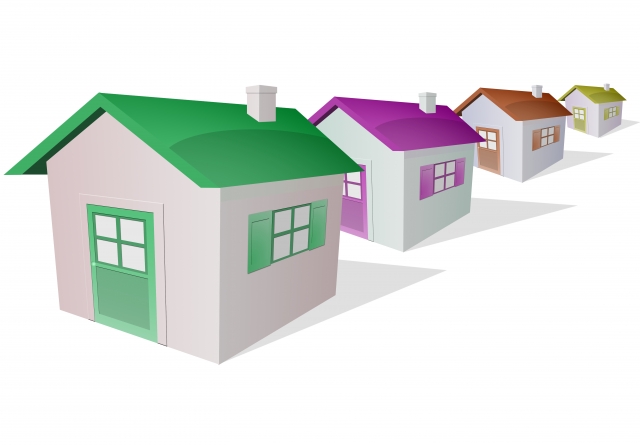
‘Freehold’ and ‘leasehold’ are the two main ways in which you can own a property in the UK.
However, thanks to the complexity of the English legal system, it is not always easy to get your head around what these terms actually mean. Here, we offer a clear explanation.
Freehold
If you own your home on a ‘freehold’ basis then the property and the land on which it stands is yours – end of story.
This means you have the freedom to do whatever you like to your property in terms of repairs and renovations and, assuming you pay your mortgage, you can not normally be evicted.
Being a freeholder is also likely to increase the value of your property and may make it easier to sell your home later down the line.
Leasehold
If you are a leaseholder you do not actually own the property, you only own the right to live in the property for a set period of time.
Most flats and apartments are sold on a leasehold basis, with leases usually lasting 99 years – although some terms can run for as long as 999 years. Mortgage lenders usually require that you have at least 75 years left on your lease at the time you take out your home loan.
Because you don’t actually own the property you don’t have the same freedom to do what you want with the property as you do when you are freeholder. When you buy the house always ask to check the lease paperwork as this will state any rules and restrictions. For example, you might not be able to own a pet.
One of the biggest disadvantages of being a leaseholder rather than freeholder is that you have to pay a ‘service charges’ to your landlord to cover building repairs and general maintenance in communal areas, and landlords are renowned for charging extortionate amounts. You also do not have the same protection from eviction that you do if you own your property freehold.
You can try to extend your lease, but you need to have owned a property for at least two years before you can apply and your freeholder is under no obligation to approve your request.
Buying your freehold
If you are a leaseholder you may be able to buy the freehold to your property, which means you will be able to enjoy the benefits of owning your property outright.
Thanks to new legislation in recent years it is now becoming easier to do so, but the process can still be complicated and the rules are different depending on whether your lease covers the entire building or you lease just one flat. For this reason you will need to hire a solicitor to do the legal work, and be aware it can get expensive.
If you lease the whole property, while there are some exceptions, generally speaking you need to have owned the lease for more than two years and the lease needs to have been granted to the original owner for more than 21 years.
However if you own a flat you will need to get together with the other leaseholders in your building and purchase the freehold together. This means you would each own a ‘share of the freehold’ and is known as ‘collective enfranchisement’.
There are some restrictions about who qualifies and which properties are eligible, but there is no set requirement for how long you need to have lived in the property before you apply. Your lease however must have originally been granted for at least 21 years.
If you participate in the enfranchisement you will still not actually own the property outright, but will be able to give yourself a lease for up to 999 years and revoke the need to pay ground rent.
If you buy a share of your freehold you and the other flat owners will then be responsible for the upkeep and maintenance of the communal areas. The advantage of this however is that you will be able to negotiate your own building insurance and fees for maintenance work.
For more information, help and advice about these procedures you can visit the government funded Leasehold Advisory Service website.



